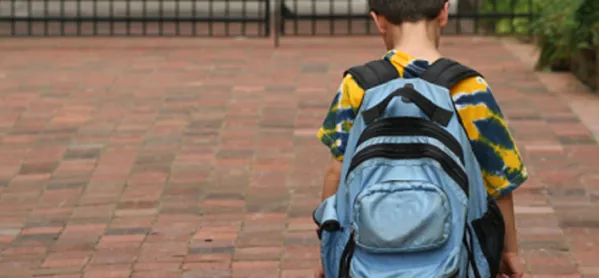Two-thirds of academy chains perform below the national average for disadvantaged pupils, new analysis suggests.
Research from the Sutton Trust, published today, indicates that disadvantaged pupils in 38 of the 58 chains analysed performed below the national average for disadvantaged children across all state schools last year.
It says that a small group of the multi-academy trusts remain at the bottom of the table each year, and there is little to suggest that regional schools commissioners (RSCs) are having any success in bringing about improvement.
And while the researchers highlight three trusts that were “significantly above average” in 2017, they say it is “perplexing” that the government has done little to help others learn from their success.
The research by Professor Merryn Hutchings and Professor Becky Francis analysed the performance of those entitled to the pupil premium on Progress 8, Attainment 8 and the proportion gaining GCSE grades 9-4 in both English and maths.
The report urges the RSCs to act more decisively with chains that do not deliver improvement over time, to ensure the academies programme realises its goal of improving outcomes for disadvantaged children.
Academy chains ‘struggling with disadvantaged pupils’
Prof Francis, director of the UCL-Institute of Education, said: “Our five-year analysis of sponsor academies’ provision for disadvantaged pupils shows that while a few chains are demonstrating transformational results for these pupils, more are struggling.
“We continue to find it perplexing that the government has done so little to explore the methods of these successful chains and to distil learning to support others.”
The report also highlights some academy chains that enter high numbers of pupils to the EBacc, many of whom fail to achieve the required number of pass marks.
It says the Meller Educational Trust entered 36 per cent of its disadvantaged pupils in all EBacc subjects, with only 1.4 per cent achieving a standard pass in all of them, while Greenwood Academies Trust entered “almost half” of its disadvantaged pupils, with 8.5 per cent achieving standard passes.
By contrast, Outwood Grange entered only 19 per cent, but 13 per cent achieved standard passes - which the report says was “well above the average across the chains”.
The report says that while research evidence shows that the EBacc subjects are important for future careers, “failure magnifies disadvantage for these pupils, and these factors must be carefully balanced in exam entry”.
The report also shows that long-standing academy chains show better exam results, with newer chains frequently performing poorly, indicating that it takes time for a new trust to establish effective practices in the schools it takes over.
Mary Bousted, joint general secretary of the NEU teaching union, said: “The foundational myth of the academies programme - that it would boost educational attainment among young people from disadvantaged backgrounds - must now be laid to rest as just that: a myth.”
However, Geoff Barton, general secretary of the Association of School and College Leaders, urged against using the report for “political point-scoring and anti-academy rhetoric”.
He said: “It is important to understand that many multi-academy trusts take on schools which have been judged by Ofsted as ‘inadequate’ and which are therefore likely to have results that are below average.
“Different trusts will have different mixes of schools at different starting points.”
A Department for Education spokesperson said: “We are striving for a world-class education for all children, regardless of background.
“Converting to become an academy is a positive choice that is made by hundreds of schools every year.
“The growing number of successful multi-academy trusts are playing an important part in driving up standards in our schools by allowing them to work together to focus their efforts on quality teaching.”
The 58 chains included in the research were groups with three or more academies of any type, which had consistently included at least two secondary or all-through sponsored academies from the start of the 2014-15 school year to the end of the 2016-17 school year.




